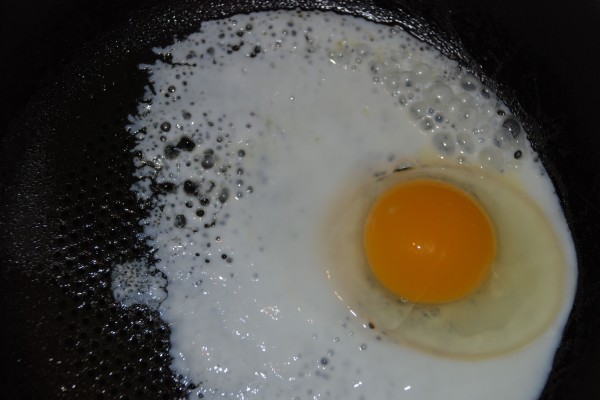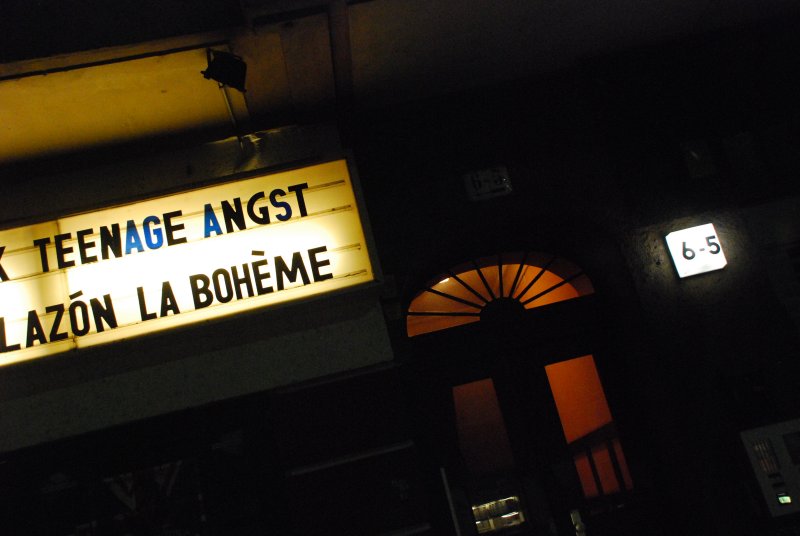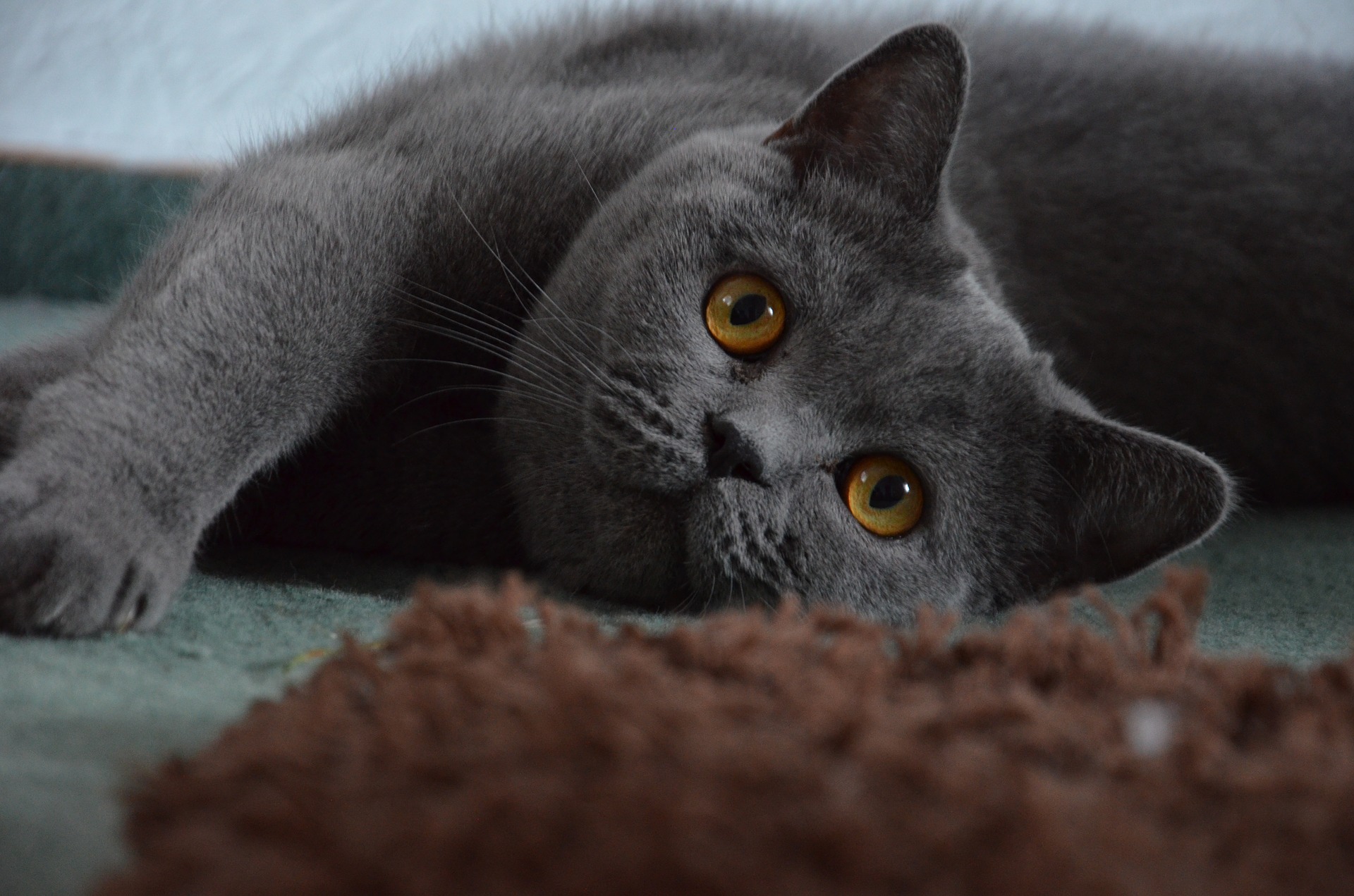Fiction by Jessica Lilien
Hear Jessica Lilien read a version of this story TONIGHT at the CATCH & RELEASE LAUNCH PARTY: 8pm, Columbia University’s School of the Arts, Dodge Hall 501.
—
Greg Ragner was a guy who could cook an egg in his mouth. He could hardly remember how he had discovered this ability, but he had been able to do it since he was very little. He remembered his mother’s face (so different from how it was now that it might have been a whole other person, someone vague and pretty he only sort of recognized from TV) watching him do it: in the kitchen at the old house on Hollybrook, with the yellow linoleum, and she was this strange-familiar person torn between laughing surprise and maternal trust and – something else. Not disgust. Some people had that reaction, an uncontrollable thing, it wasn’t their fault and he didn’t take offense to it, but he was sure that was definitely not what his mother had felt then, when he was small and she was young. He was grown now, and she was living halfway across the country in Miami with a roommate; they sunned on the beach and went to game nights at the Rec Center. He taught French and Spanish at the community college, tutored high school students evenings. Students who knew about the egg thing joked sometimes that maybe one informed the other: all that trilling, rolling of the Rs, smooth wide “oeuf” and “huevo,” the contortions and exercises of the tongue around all those different sounds (taking a trip of, like, two-and-a-half steps down the palate to tap, at terminus, on the teeth: “fri-tta-ta”). It was just a joke, though.
Lots of people joked about it. It was kind of funny. And the disgust reaction really was relatively rare; he wasn’t even sure why he’d thought of it. Mostly, honestly, people just didn’t believe it at all, thought it must be some kind of trick. (Though of course: why? Which was how you knew it wasn’t a trick, if you thought about it.) Greg didn’t make any particular effort to prove it to them, the people who didn’t believe it. Other people, who already knew about it and already believed: they were the ones who wanted him to prove it to the doubters, to do it. It was a little embarrassing when that happened.
Greg did not make any particular effort to keep his ability a secret, though, either. It was nothing to be ashamed of. It could be an interesting thing to pull out at parties, like popping the joints of your thumbs or reciting rhyming children’s books from memory. Sometimes he was asked why he did not try to monetize it in some way, make a little cash off of it. Surely, he replied, eyebrows raised humorously, they did not mean that he should look into the food service industry? The Health Department might have something to say about that. But of course what they did mean was just as ridiculous: become a magician with one trick, which wasn’t much to look at on stage, anyway, or – or what, though? What other options were there, exactly, for a guy with his particular skill set? Talk shows, tv? Conan? Once you got past the initial surprise of it, the “huh” of it, there just wasn’t that much to see, or talk about. Greg was just a guy who could cook an egg in his mouth.
When he was in high school, a religious woman, another student’s mother, someone about whom there were unkind whispers, once called him a “miracle child,” and said that he was a message from God. That was pretty awkward, but more so for the other kid, her son. He was a wrestler, kind of popular, a jock, and you could tell he didn’t want to hurt her feelings.
The type of cooking that Greg did in his mouth amounted to boiling, in effect. He could place in his mouth a whole raw intact egg – chicken or duck or quail, it did not matter, whatever would fit with his lips (though not necessarily his teeth) closed around it – and then remove it, some minutes later, hard-boiled. Or soft-boiled, or medium-boiled. It just depended on how long he left it in there. He could not fry an egg, or scramble one, or poach it. In college he used to make himself breakfast or lunch this way, if he was alone, and in a hurry. Boiled eggs were portable, easy to bring to campus, or to eat on the way there (a fat pinch of table salt in a twisted-up pouch, a ragged corner torn from a roll of paper towels), and it was quick, simple, cheap. Not as many people had known about it, about his ability, back when he was in college. These days he almost never ate eggs or egg products outside the home. He did not bring egg salad or deviled eggs to potluck picnics; people would half-joke with him no matter what, smile at him in an unsure way. His mother had never made much of a big deal about Easter.
He had been on a date recently – it was a second date, in fact – the first had gone very well, he thought – with a man from the community college, an administrator in the Dean’s office. They’d met because they both ate lunch at the same time, in the same cafeteria, so often. This second date had included, after the movie, dinner at a diner he liked. He had ordered the Southwestern Skillet (beans and peppers and potatoes and sausage, mostly, he hadn’t even thought about it, but, yes) and his date had teased Greg, told him he would have assumed he was tired of it by now, all those eggs all the time, and after a while Greg realized that his date thought he somehow produced eggs in his mouth – that he had the ability to make them appear, or worse: that they just showed up, unbidden, uncontrollably – something like that, he didn’t really hunt down all the details of his misconception once he understood, in general, what he meant. This was, of course, not true. But he wasn’t entirely sure how to correct him, or even whether he should, though he wanted to. Greg wanted him to understand that he wasn’t a – chicken, or a freak. But it felt awkward, he didn’t want to make a big deal of it, bring attention to it, or worse: offend him, make him feel like he’d said anything wrong (because he hadn’t, it wasn’t a big deal, it wasn’t like he didn’t talk about it), so he’d just laughed, rolled his eyes in a “you-got-me” kind of way, asked him about the controversial new Registrar, cleaned his whole plate because it was fine, it didn’t matter, he wasn’t even thinking about it.
He did not know how, exactly, he did this thing that he did. His mouth did not feel hot, either to his own tongue or to his fingers, during or after. He did not blister, or burn. He was not dangerous. He could be kissed (though who would want to?). It was not even, exactly, a particular movement he made, or muscle he flexed. He just put an egg in his mouth, and kind of thought about it, or didn’t, and waited, and a few minutes later he found that it had – happened.
Other people had tried to find out how he did it. He’d been studied, briefly, when he was younger. His mother had taken him to a doctor. She’d thought that maybe it was a sign of something else, something latent, an early symptom of a disease yet to come. The doctor shrugged, pronounced him obviously healthy, but passed him along down the line to a specialist, who passed him on to another, and the specialists at some point turned into researchers, scientists, from the state college. They were sure it wasn’t heat-based. It had to be chemical, they decided, something more along the lines of ceviche (neither he nor his mother had ever had ceviche, neither of them even knew what it was until they looked it up in a cookbook at the library on the way home that same afternoon; they tittered and shushed each other as they flipped through pages of beautiful full-color photographs: glistening white fish, avocado, red onion, hot peppers, lovely-looking; he’d still never tried it), but they were never able to isolate any particular chemical or acid or compound in his glands that might be the culprit. And in the end, it turned out that a guy who could cook an egg in his mouth isn’t of that much use to science. It’s not like he could cure cancer in his mouth, or power combustion engines in his mouth. After a while, the researchers decided it didn’t really matter how he did it, anyway. He still sent them blood samples every six months; they paid him an honorarium of twelve dollars for it each time, plus a reimbursement of 55.5 cents per mile for the gas to get to the doctor.
The real trick, a fellow instructor at the college had joked one day, would be if it went in an egg and came out a bird. Greg could of course not do that; he thought probably no one could. Another instructor had joked that he was like an X-Man, and they had all chuckled over the pity of being a mutant with such a useless superpower. He had brought tuna salad for lunch that day, but apparently that was close enough to egg salad to remind people of jokes.
He actually wasn’t entirely sure how those guys had known about it. He didn’t bring it up himself much anymore, certainly not on job interviews or dates. He didn’t, you know, brag about it. But it was a small community, this roving band of low-paid, ill-insured, slightly desperate adjunct professors in a relatively small city in a slow Midwestern state. Word got around. (This must have been how the man from the Dean’s office had found out. Idle gossip in the cafeteria, one day when Greg hadn’t been there. Who had told him, though, he wondered? Why would they have told him? And how long had he known, before he brought it up? Had he known before Greg had asked him out, even?) He wasn’t embarrassed. He didn’t hide it. He would show people, if they really wanted. Just – not at work, you know. He had been approached by local news media, but he had turned them down. He was a little shy – in general, not just about the egg thing. Joking with colleagues was one thing, but he thought that being on the 6 o’clock news was showing off.
He didn’t do it often. He hadn’t done it in a long time. Honestly, he didn’t even eat that many eggs these days – usually bought them mostly just for baking, if that: pancakes or banana bread when the craving struck, and then, weeks later, threw away the other nine from the leftover dozen when he started to worry that they’d gone bad from sitting there.
So really, he didn’t know when he’d lost the ability, either. There was no particular tissue or tendon or heating coil in his throat that he felt wither or crack and die. He might have been without the ability for a long time before he’d even noticed – weeks, easily, or months. Many months, maybe. When was the last time he’d done it? It was hard to remember. It was such a nothing thing. It was like trying to remember the last time you bought a tomato or lost a pen. It wasn’t a thing to be filed away or kept for later reference.
When he did notice, he was making Russian Salad. Crisp green round fresh peas, tiny perfect cubes of potato and carrot and ham, home-made mayonnaise, because you couldn’t do it with store-bought; it wasn’t the same if you did. (It was an old recipe, memorized. Who had first taught it to him? Tony, in college? No, a girl, it felt like – but who? Weird to not remember. Something you just do, automatically, something you just know you know, you assume, accept, don’t wonder about, and then what? You forget.) Unthinking, he pushed an egg with the flat of his fingers along the edge of the cutting board to break and loosen the shell, to peel it, and instead of smoothly rolling, crackling like pottery, de-gloving itself, the egg had simply shattered beneath his palm. His hand had gone fast down through the body of it, startling up heavy ropes of albumen onto the microwave and onto his shirt, his hand grinding hard into shell like gravel, it was a surprise was the thing, like thinking there’s still one more step left in the stairs or keeping your eyes closed while your plane lands and the ground is there so suddenly that there’s something in the pit of your belly that twitches. He’d made a noise when he gasped – “Ahng!” – around a second egg already in his mouth. And if it hadn’t been as big as it was – if it had been a quail egg instead of a chicken egg, for instance – he might have inhaled it when he gasped and choked to death.
Instead, after a long second’s startled, mindless confusion, he’d laughed, just a little, harshly, but laughed at himself at least and had taken the second egg out of his mouth and cleaned the counter – Clorox wipes – raw egg was dangerous – and washed his hands and changed his shirt and smoothed his hair and put himself to rights and then he put the second egg back in his mouth, and leaned against the counter and crossed his arms in front of his chest (instead of going back to chopping the parboiled carrots and potatoes scattered half-done across the board behind him) and he’d wondered if his timing would be a little off – having paused in the middle like that – if the egg would cook oddly, give the yolk that sulphury grey-green outside layer or make it too hard or too dry or too crumbly. He stared into the middle distance and idly flexed the cup of his tongue around the smoothness of it, held it in an active way, wondered at his own saliva, wondered at the taste of his mouth, wondered at his heartbeat, the sound of his breathing within his own head, thought about it for the first time in a long time. You don’t think about it.
What was it that his mother had been feeling when she watched him do it, four years old, five, three maybe? Worry? Was she worried for him, the way the even most accepting and loving and liberal parents might worry for their gay children – not because they disapprove, of course, but because someone else might? Might that parent accidentally flash a microsecond’s worth of disappointment across her face upon the coming-out, something that would be noticed by the child – misinterpreted – and recorded and filed away forever, never spoken of, but cradled and touched and cherished like a sparrow or a loose ruby, no matter how much support comes later, even though the child knows – knows – that the parent didn’t mean it, or doesn’t, anymore, at least.
He had handed it to her, showed her that she could peel it now like a fruit, it was cool and clean and the shell came off in large easy pieces, proud of himself, happy to give her gifts. She had touched his head, kissed it and smiled at him, eventually. She had not eaten the egg, he thought, though he could not quite remember exactly what she might have done with it, instead.
The researchers, he thought. He wondered if there had been any changes since his last blood test. He wondered if there would be any in his next blood test. When was it? Soon? Spring? It was easy to forget. He wondered if he should call them. But who would he call? Did he even have a number, a name, anymore? He wondered who even still received the sample, did the testing. Where they wrote down the results, and what they did with them. He wondered if they’d forgotten all about him, sent him the twice-yearly honorarium out of administrative habit only, and let the samples gather frost in a freezer somewhere, untested and ignored.
He removed his egg then and looked at it, shook it beside his ear, looked at it again. Laid it on its side half hanging off the edge of the cutting board again like the last one, then changed his mind. He took it instead to the sink and, after just a brief pause, hit it hard against the steel side there. Too hard, probably; he didn’t know. It collapsed in his fingers: raw, of course. He wasn’t sure what to do next. He stood stupid for a long time and looked at it fat and wet at the bottom of the sink in a meaningless little plop. He put his finger in it, swung it around in circles, crazy how it does that, the word “membrane,” broke into the skin of the yellow of it, watched it leak like something vital toward the drain. He didn’t want to clean it up. He didn’t want to wash his hands, or go look up how to boil an egg, or put away the unchopped carrots and the peas to assemble later. He didn’t want any more to do with the Russian Salad. He didn’t want to throw it away, though. He’d been taught not to waste food as a child.
How had he learned that he could do it? Why had he first tried it? When was the first time he had put an egg in his mouth, and why, after having done it, had he then tried to crack it open? How many people had never tried it? How many people could do it, but didn’t know that they could? And how many people could do it, but didn’t know, and then stopped being able to do it? Would they be sad, if you told them, afterward, that they had had this skill but lost it? That they had missed this opportunity? That they’d never taken advantage of this thing that they didn’t need to do? What does it mean to lose something that doesn’t mean anything to you to begin with? Would you be sad? Would you laugh? Would you pretend to? Would you tell anyone? Would you pick up the phone, and call, and pretend it was routine, a regular chat, a normal hello, how are you, how’s the beach, what are you doing this weekend, no, I haven’t seen Aaron again, I’m not sure, but classes are fine, students are fine, everything is fine, you don’t have to worry anymore, I’m fine now, everything is fine, I’ll be fine, everything will be okay, I’m sorry I worried you but everything will be okay from now on, I love you, too.
—
Jessica Lilien has work published or forthcoming in LUMINA, Clackamas Literary Review, and Morpheus Tales Magazine, among others. Her short story “After Saco River” was one of the winners of the LUMINA XII 2013 Fiction Contest, judged by George Saunders. He called it “very strange,” among other things that sound more complimentary when taken out of context. She lives in Brooklyn.
—
Featured Image photograph by E.B. Bartels, www.ebbartels.com.




